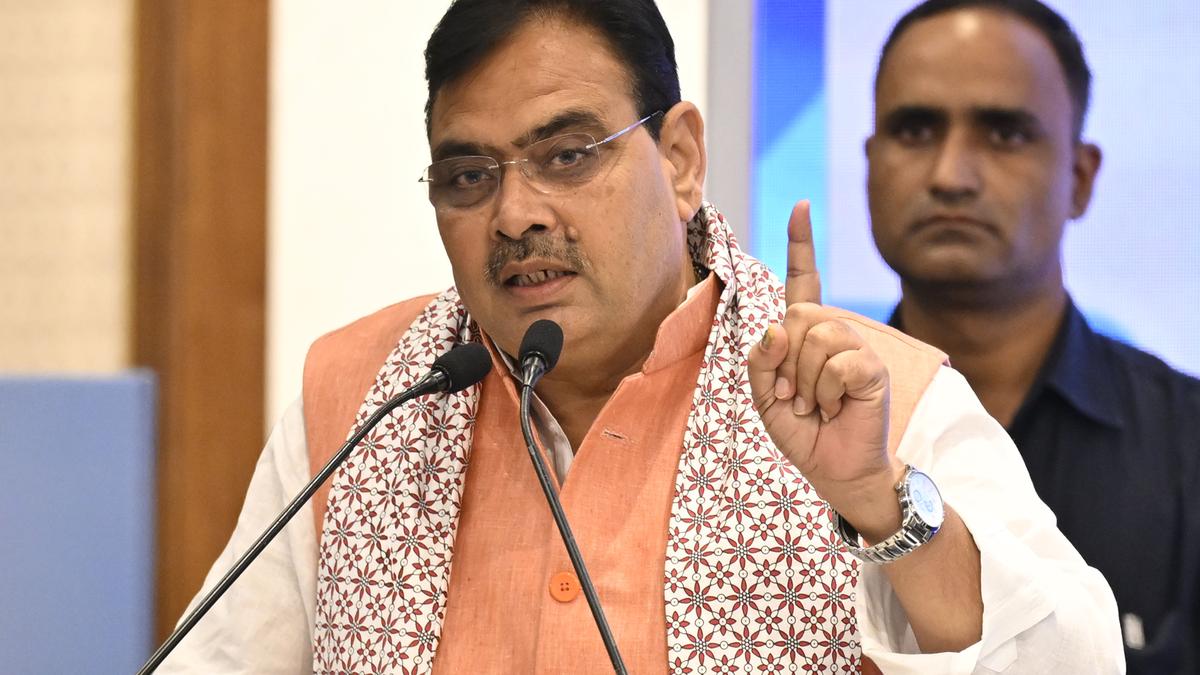If courts can review a Governor’s recommendation for President’s rule, why cannot the judiciary examine a Governor for sitting on crucial State Bills for years together, Chief Justice of India B.R. Gavai, heading a Presidential Reference Bench, asked the Centre and BJP-ruled States on Tuesday.
Presidential Reference hearing highlights
“If the discretion exercised by a Governor under Article 356 of the Constitution can be judicially reviewed, why not the discretion under Article 200?” Chief Justice Gavai responded with a question to a submission made by the State of Maharashtra, represented by senior advocate Neeraj Kishan Kaul, about the “wide” discretionary powers of Governors.

Article 356 of the Constitution covers the circumstances leading to the President’s rule in a State. The President’s decision is based on a report given by the State Governor about the failure of the constitutional machinery of the State.
The Supreme Court, in its judgment in S.R. Bommai case (1994), had held that the proclamation of President’s rule could be reviewed by courts to ensure it was not motivated by malafide reasons.
Also Read | Supreme Court counters Centre’s argument that President has no assent time limit
Article 200, which is the focal point of the Presidential Reference, deals with the Governor’s power to deal with State Bills placed before him for assent. The Reference was triggered by an April 8 judgment of a two-judge Bench of the Supreme Court in a petition filed by Tamil Nadu against its Governor, who had been sitting on Bills since 2020. The judgment had prescribed three-month deadlines for the President and Governors to decide on State Bills. It had said the Bills would be deemed to have got assent if the constitutional authorities did not take action within the stipulated time.
Supporting the Presidential Reference, the Centre and States like Maharashtra, Rajasthan, Chhattisgarh, Goa, Haryana and the Union Territory of Puducherry argued that the judiciary cannot limit the President and Governors to deadlines.
“The discretion of the Governor under Article 200 cannot be put in a straitjacket… The discretion of the President/Governor is incapable of being judicially reviewed. If there is anything wrong in the conduct of the Governor, the Parliament will take care. It should not be placed before the judiciary,” Mr. Kaul argued.
“So if the Governor sits on Bills from 2020 to 2025, the court should sit powerless,” the CJI asked.
Appearing for Maharashtra, senior advocate Harish Salve argued that the action of giving gubernatorial assent to a Bill was the “culminating step of the legislative procedure”.
“The functions of the Governor under Article 200 are indisputably legislative in character,” Mr. Salve submitted. He said the Centre had control over the State legislature.
To this the Chief Justice quoted Dr. B.R. Ambedkar’s words that the Centre and States would function within their own respective domains unless there was an internal emergency.
Both Mr. Kaul and Salve pointed out that Article 200 did give any preconditions for the Governor to give assent, withhold or reserve Bills. “Then, how is it possible to make a judicial decision on his bonafide,” Mr. Salve asked.
Senior advocate Maninder Singh, for Rajasthan, said the grant of assent to a Bill was a full-fledged legislative act, which cannot be confined to any time limits.
Additional Solicitor General K.M. Nataraj, appearing for Odisha and Uttar Pradesh, submitted that the President and Governors enjoy absolute functional autonomy. Mr. Nataraj said ‘constitutionality’ cannot be what the judges want it to be.
Additional Solicitor General Vikramjit Banerjee, for Goa, said the process of legislation cannot be complete without the grant of assent by the Governor to a Bill.
“The Constitution does not define ‘deemed assent’. Judiciary cannot insert itself into a legislative role,” he submitted.
Appearing for Chhattisgarh, Haryana, and Puducherry, senior advocates Mahesh Jethmalani, Guru Krishnakumar and Vinay Navare argued that it was “impermissible, even disrespectful, to tie down Governors to time limits” under Article 200.



.png)
.png)
.png)
















 2 hours ago
3
2 hours ago
3







 English (US) ·
English (US) ·